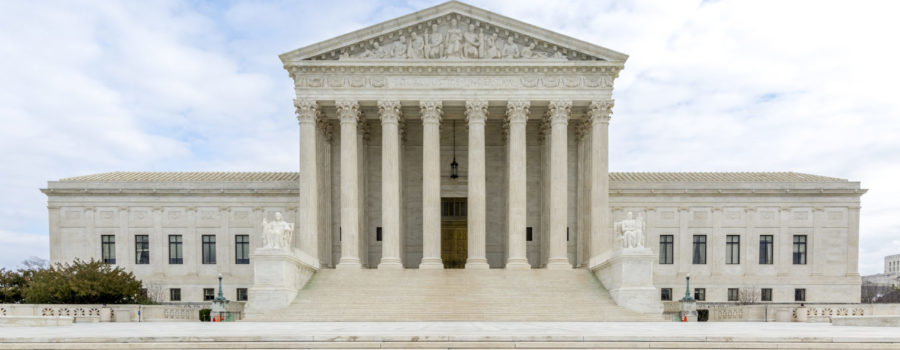
A recent Supreme Court decision marks a change in false advertising case law. The Lexmark v. Static Control decision further defined Lanham Act parameters and created a consistent national standard for allowable marketing claims.
First, A Little About the Lanham Act as It Relates To Lexmark v. Static Control
Signed into law in the summer of 1946, and updated several times since, the Lanham Act addresses intellectual property – and by extension marketing – issues, including (but not limited to) trademark dilution, infringement, and false advertising.
Who Can Sue For Infringement?
The Lanham Act suggests limitations on allowable plaintiffs in certain trademark cases, but the language is vague. Subsequently, local and appellate courts have used different tests when adjudicating false advertising cases. Some courts say only direct competitors can use the Lanham Act for redress, while others insist that anyone in a quasi-supply-chain can do so.
With the new Lexmark ruling, however, there’s now a single test for all cases.
Lexmark v. Static Control: One of the Most Important Tech Lawsuits of Our Time
Lexmark makes printers and print cartridges. Static Control makes parts for “remanufacturers” that recycle parts on Lexmark toners, and then sell the refurbished cartridges (usually for a lower price).
Remanufacturers, like Static Control, rely on cheap and constant access to used Lexmark printers and parts. So, in an effort to dissuade consumers from returning old cartridges to Lexmark instead of refurbishing companies, Lexmark instituted a “prebate” program. To enforce the program, Lexmark equipped their toner cartridges with “turn off” chips that were supposed to prevent other parties from refurbishing Lexmark printer cartridges.
Enter Static Control – toner remanufacturer to the stars. Presumably via reverse engineering, Static Control made a chip that worked like Lexmark’s “turn off” chip, allowing remanufacturers to use Lexmark cartridges outfitted with the special Lexmark prebate chip.
Lexmark sued Static Control for trademark infringement over the replica “turn off chip.” Static Control counter-sued for false advertising and trade libel. The parts manufacturer argued it did nothing wrong by making a chip similar to Lexmark’s, and that Lexmark was in the wrong for sending out industry news blasts saying that the Static Control chips wouldn’t work with their cartridges.
TL;DR: Printer toner cartridge company, Lexmark, got upset with another company, Static Control, for allegedly infringing by way of reverse engineering a chip. So, Lexmark sued Static Control for trademark infringement and Static Control counter sued for false advertising and trade libel.
Competitors & Deceptive Marketing
The original plaintiff, Lexmark, was not in direct competition with the defendant, Static Control. Regardless, Lexmark’s assertions about Static Control allegedly diminished consumer demand for Static Control’s products.
Justice Scalia wrote the Lexmark judgment. In it, he essentially discards existing appellate tests related to competition and trademark cases. In their places, via Lexmark, the Supreme Court produced a new rule for false advertising lawsuits: civil trademark plaintiffs and defendants must be inside the same business “zone of interest” for a suit to proceed. In other words, to file a false advertising claim under the Lanham Act, the plaintiff must suffer a profit loss caused by a damaged reputation or diminished sales.
What Did Lexmark Change About False Advertising Law In The United States?
The Lexmark ruling means more businesses can sue for false advertising using the Lanham Act. However, jurisdictions that previously permitted wide-ranging tests may see a downturn in unfair competition claims.
Consult With A False Advertising Attorney
Are you dealing with false advertising challenges? Kelly / Warner has successfully handled countless unfair competition, advertising, and marketing claims. If you’re interested in learning more about false advertising legal options or compliance standards, get in touch with Kelly / Warner Law today.
Additional Source:
Supreme Court Changes False Advertising Law Across the Country – Eric Goldman




Leave a Reply
Your email is safe with us.